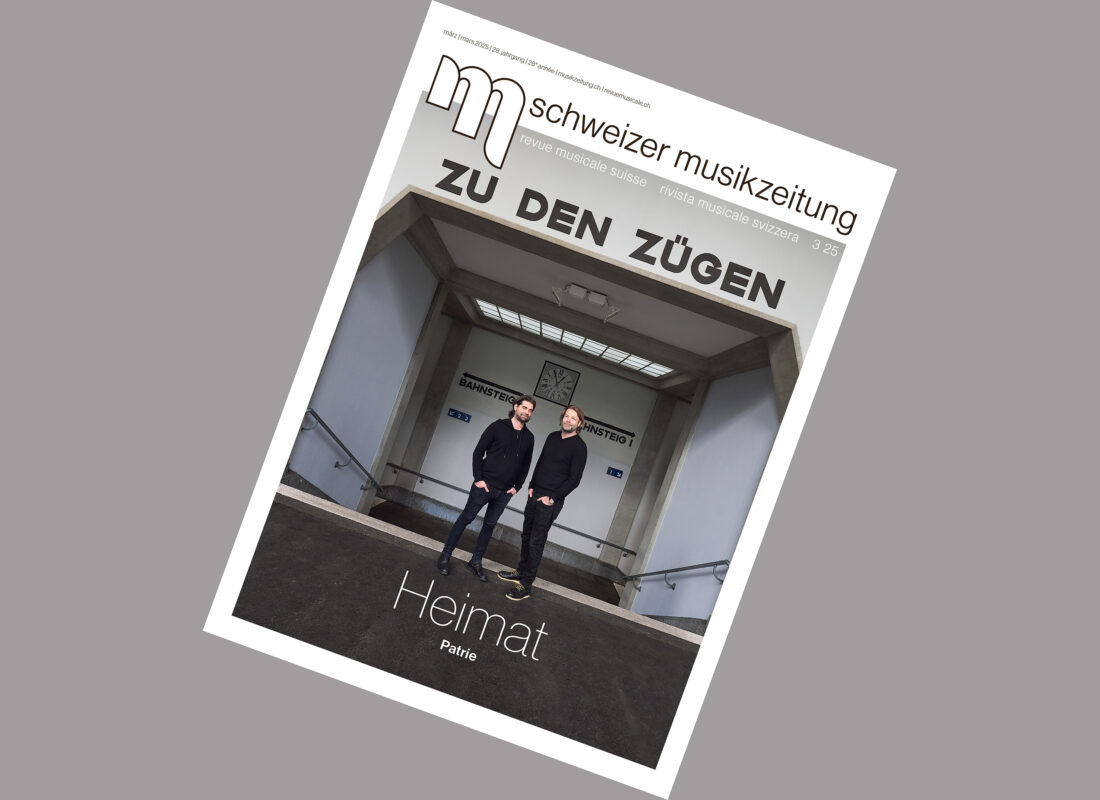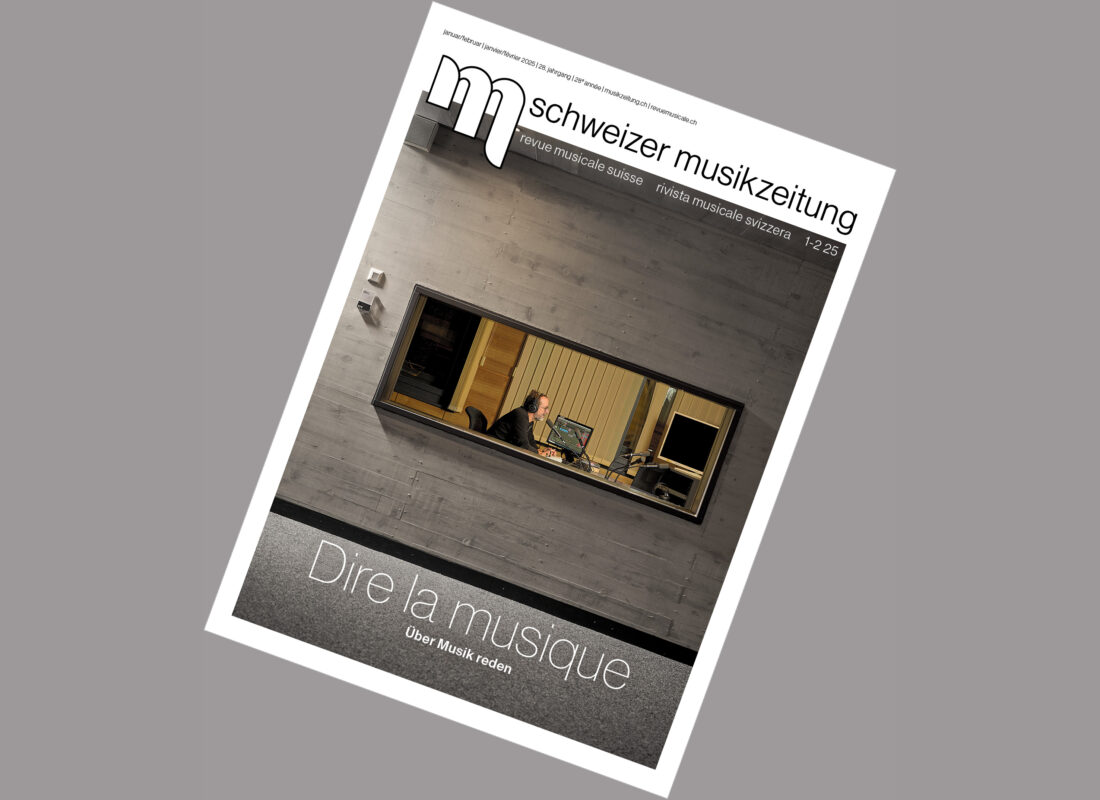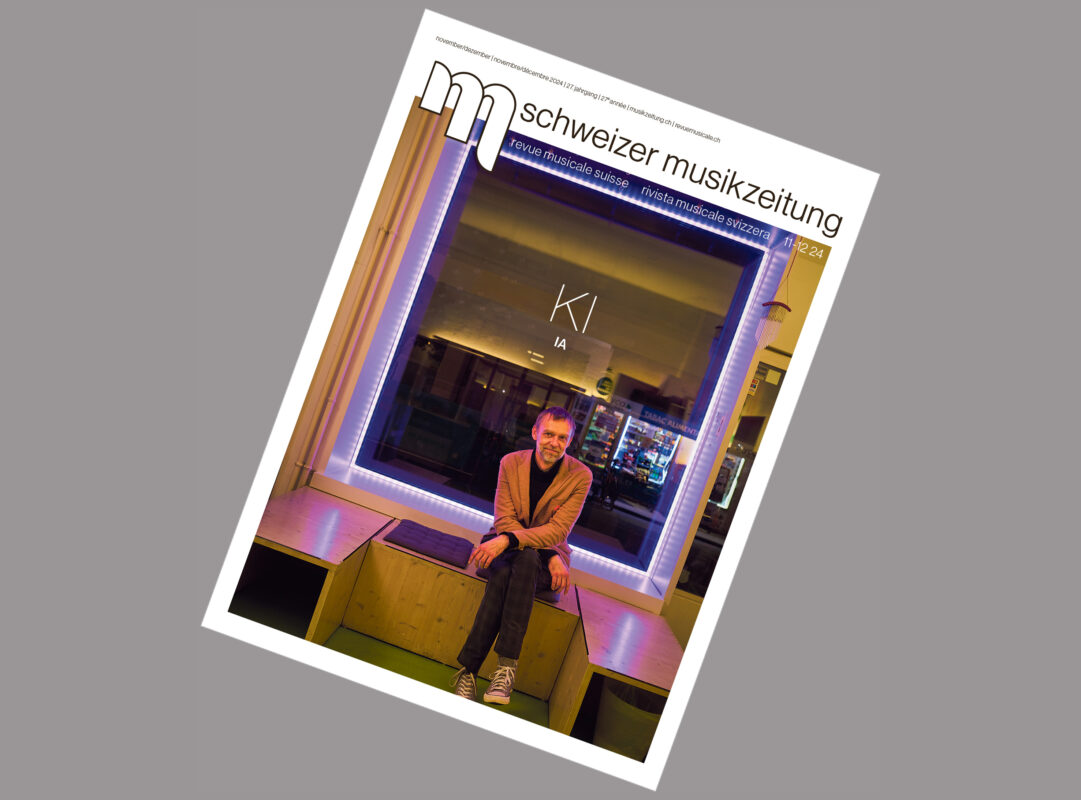Image and representation in hybrid space
In his work "Mirror Box Extensions", the Belgian composer creates a musical interpretation of the everyday fusion of our real and virtual worlds.


In his work "Mirror Box Extensions", the Belgian composer creates a musical interpretation of the everyday fusion of our real and virtual worlds.
Photography or filming by the audience is generally prohibited at concerts. However, in the age of smartphones and the like, it can't really be stopped. It's all too easy to whip out a small device and capture a memory on a digital memory card. And it is not uncommon to see individual members of the audience filming entire passages or recording the sound with a cell phone recorder. Nobody seems to care that personal rights and copyrights could be violated here. All-encompassing digitalization has become far too prevalent in our everyday lives and technological progress is facilitating this process by making more and more storage space available. Photography and filming have become the norm. The once fleeting moment is captured and can be relived at any time. The more precious it once was, the more it is worn out through repeated consumption. The uniqueness of the "live" has become a permanent "re-live". The concert situation in particular suffers from this. After all, the digital image is not identical to the flesh-and-blood performers who deliver top performances on stage. However, the extent to which the boundaries between the two are already blurred is explored by Belgian composer Stefan Prins in his work Mirror Box Extensions on.
Principle of mirror therapy
The piece was performed by the Nadar Ensemble at the Donaueschingen Music Festival in 2015. Seven instrumentalists are complemented by electronics and video projections. It is based on the composition Mirror Box In it, Prins musically explores the principle of mirror therapy as used by doctors. Patients who suffer from phantom limb pain after an amputation place their remaining healthy limb in a box equipped with mirrors. Every movement they make is now duplicated by the mirror image, creating the optical impression of two functioning arms or legs. This illusion can be used therapeutically.
At Prins Mirror Box the third part of a series of works entitled Flesh+Prosthesis, in which hybrids of human and technology are created. The instrumentally generated sounds are recorded and transformed live-electronically, whereby the musicians can be understood as "flesh" and the electronics as "prosthesis". For Mirror Box Extensions this principle was extended to include videos that were pre-produced and projected onto transparent screens during the concert. They show the musicians playing life-size, making it difficult to distinguish them from the original. Image and likeness move, freeze, disappear and appear. The composer's aim is to show the extent to which the real and virtual worlds have already merged in our everyday lives. He calls the digital copies of the musicians performing on stage "avatars" and they also play an important role in other of his works. For example, in the piano cycle Piano Herothe third part of which was premiered at the Darmstadt Summer Course for New Music in 2016. However, a contrary trend is emerging here. In Piano Hero I (2011), the pianist uses a digital piano keyboard to control short video sequences that are projected onto a screen and show him performing various actions in the interior of a concert grand piano. Removed keys of the piano fall onto the strings, the piano is scratched and scraped. All the sounds come from the loudspeakers; only rarely does the muffled clacking of the digital keyboard penetrate. Videos are also used in the second part, but the pianist also plays an acoustic piano and enters into a dialog with his image. The avatar finally disappears in the third part of the cycle, in which only a live electronic processing of the sounds takes place inside the grand piano on stage. There is no more video here. The musician thus steps out of the virtual space into the analog world, he recaptures reality and it remains to be seen whether Prins will continue this development in further works of the Piano Hero-series continues. In Mirror Box Extensions On the other hand, the projections are an extension on the digital level. Stefan Prins creates a hybrid concert situation consisting of musicians and their avatars that reflects our increasingly technologized reality. The real and virtual worlds are becoming increasingly blurred; he calls this state "augmented reality".
Influence of the audience
In addition to the confusion surrounding the image and likeness of the musicians, a further moment of irritation occurs when, around halfway through the 30-minute composition, individual audience members begin to photograph the stage with tablets. From their seats, they hold the devices up in the air, which causes outrage among some concertgoers. But it soon becomes clear that they are part of the composition. The hybrid state extends into the auditorium, creating a new dimension of reflection. The musician is reflected by the video on the screen and both are reflected by the audience's tablet. Stefan Prins takes up the ubiquitous smartphones and tablets, which can also be seen at new music concerts, by integrating them into his work. Ever since John Cage's "silent" piece 4'33'' there is an awareness that sounds not intended by the composer, which arise in some way during a performance, are an integral part of the musical experience. Phones being searched for in pockets, taking photos and, in the worst case, starting to ring are not uncommon. But not only do they produce noises that other audience members might find disturbing, every image of the musicians playing destroys the uniqueness of the performance. Stefan Prins shows just how much this changes the concert situation in Mirror Box Extensions. In his composition, the audience's tablets display both the photos taken of the stage and pre-produced video sequences of the instrumentalists. The piece ends with the musicians disappearing from the stage and remaining on their devices. Although the performance with its uniqueness is over, an image of the experience remains in the digital space, where it can be retrieved and consumed at any time. What Prins shows in the concert also applies outside of it. In the course of digitalization, we have become increasingly intertwined with computers, smartphones and tablets. A considerable part of our lives takes place in virtual space. With the abundance of screens that surround us every day and provide insight into other worlds, it is sometimes difficult to differentiate between fact and fiction. In Stefan Prins' ensemble piece Mirror Box Extensions the viewer is constantly confronted with illusions. Just as patients are deceived about the functionality of their limbs during mirror therapy, Prins makes it difficult to differentiate between image and likeness. The hybrid space he creates artistically reflects the reality of our lives, in which we interact with digital media to such an extent that they have become our prostheses.
Christopher Jakobi
... studies musicology at the Humboldt University in Berlin. Currently writing her master's thesis on sound saturation in the music of Raphaël Cendo.








